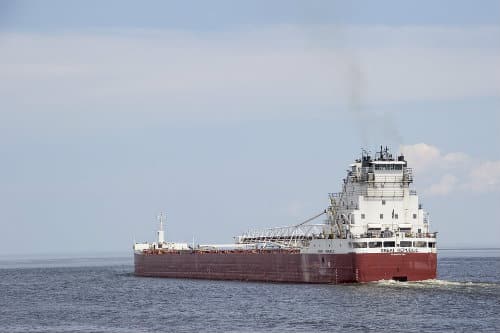When Minnesota maritime workers suffer injuries on the job, they often have many questions:
We can help you find answers to your maritime injury concerns. Contact us today for a free consultation.
With a total of nine ports split between the Mississippi River System and the Great Lakes, Minnesota is an important Midwestern city for marine cargo transportation. The central location within North America allows Minnesota ports to transport various cargoes throughout the country and into international markets. In 2015, ports and harbors on these two water systems transported over 67 million tons of cargo.
Over 12,000 Minnesota jobs are either directly or indirectly related to operations at the state’s waterways and ports. These waterways generate a total revenue impact of about $2 billion per year. The maritime workforce in Minnesota has the ability to provide a comfortable middle-class lifestyle for themselves and their families, but there are risks with this type of work. There are certain inherent occupational hazards in some maritime occupations, but some employers allow preventable offshore injuries to occur due to negligence. When this happens, maritime workers may seek financial compensation in a Jones Act claim or through other maritime laws.
For more information, contact our experienced offshore accident lawyers today.

There are two main laws which deal with maritime worker injuries and financial compensation:
The Jones Act covers workers who meet the law’s definition of a “seaman” – anyone who spends at least 30% of their work time contributing to the function of a vessel on navigable waters. Some examples include cargo ship crew members, cruise ship employees, ship repair staff, and offshore oil rig workers.
This act offers no-fault maintenance and cure benefits, which provides compensation for daily living expenses like rent/mortgage, bills, and utilities and for medical expenses up until maximum recovery is reached.
Jones Act workers can also recover additional financial compensation if negligence or an unseaworthy vessel played a role in their injuries. Negligence can mean any failure to maintain a safe working environment for employees. A vessel may be considered unseaworthy if any danger, defect, or another safety violation exists on board the ship. If either (or both) of these conditions are meant, you could have grounds for a Jones Act lawsuit against your employer and/or the owner of the vessel.
Maritime workers who spend most of their time at docks, ports, harbors, or doing longshore work are generally covered by the Longshore and Harbor Workers’ Compensation Act (LHWCA). These benefits are completely no-fault and provide compensation for any work-related injury, regardless of how it may have occurred. You qualify for benefits even if the injury was your fault, and your employer is protected from lawsuits when an employee gets injured on the job.
Benefits covered under the LHWCA include:
Minnesota’s marine cargo loads primarily move through one of two large commercial water systems:
Minnesota is the northern-most point of the Mississippi River system, which covers over 222 miles throughout the state and accounts for five port areas. These ports move a variety of cargoes down the river and specialize in agricultural products like corn, soybeans, wheat, and grains. Other popular commodities include fertilizer, cement, sand and gravel, salt, coal, steel, and scrap metals. In 2015, the five ports along the Mississippi River in Minnesota transported over 11.6 million tons of cargo.
There are four Minnesota ports on Lake Superior, which transported a total of over 57 million tons of cargo in 2015. These ports include:
Taconite is by far the most popular commodity shipped from Minnesota via the Great Lakes, accounting for 37.6 million tons in 2015. Western coal is the second leading commodity, with 13.3 million tons being shipped in 2015. Other top commodities include grain, cement, salt, steel, limestone, and wind generator components.
If you’ve been injured while working on or near one of Minnesota’s commercial waterways, it’s important to protect yourself. Maritime and offshore injuries often result in high medical bills, extended periods away from work, and various personal difficulties. In order to give yourself the best chance of a full recovery, it’s important to seek the full financial compensation you’re entitled to.
Many Minnesota maritime workers are unaware of their right to financial compensation, while others attempt to file a claim on their own without realizing how difficult it can be. Some others settle for far less than they deserve when they could have recovered much more with the help of an experienced lawyer. When filing a claim, you’ll be dealing with your employer, their powerful insurance company, and their skilled lawyers. Having your own experienced maritime lawyer by your side is the best way to protect your rights and ensure you get the coverage you deserve.
You can find out more about your legal rights in a no-obligation free consultation with one of our experienced maritime lawyers. We also work on a contingency fee basis, which means you pay us nothing unless we help you win.
Further Reading: How To Recover Financial Compensation After A Maine Offshore Injury


 info@legalherald.com
info@legalherald.com